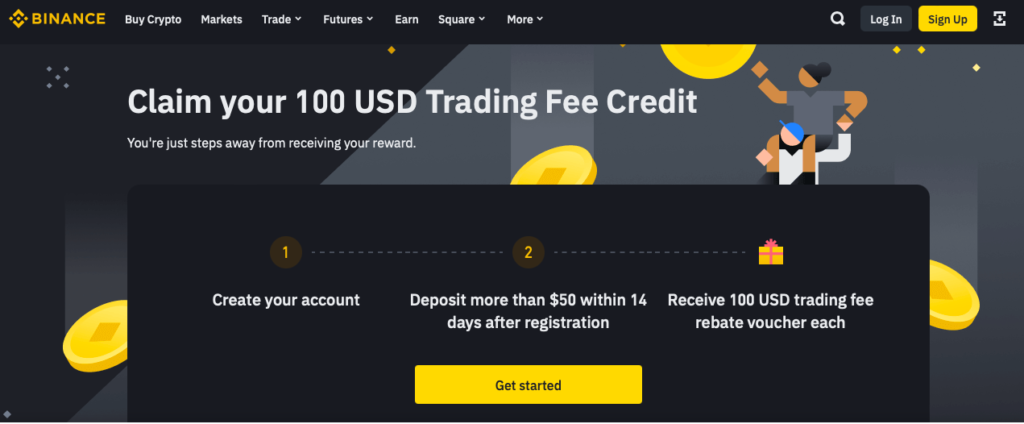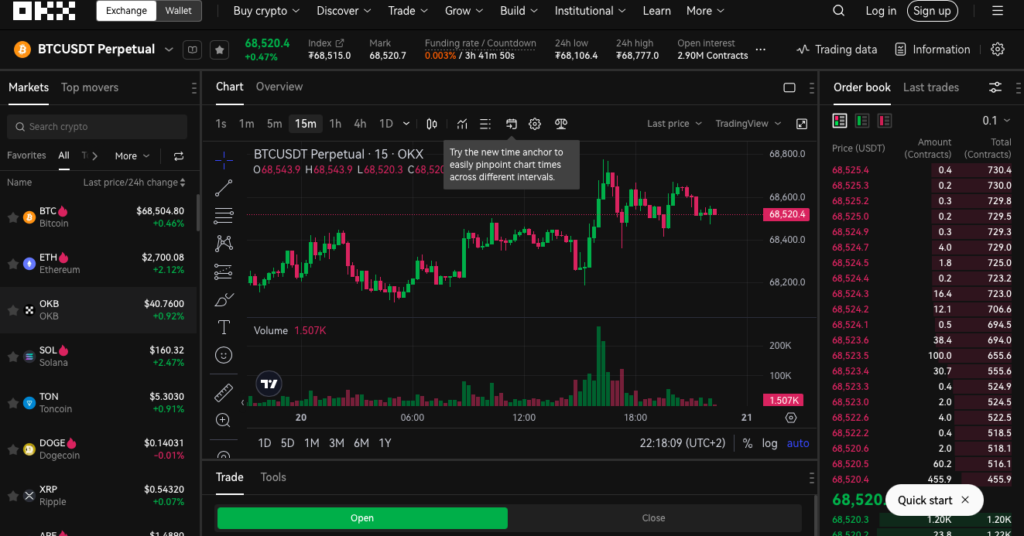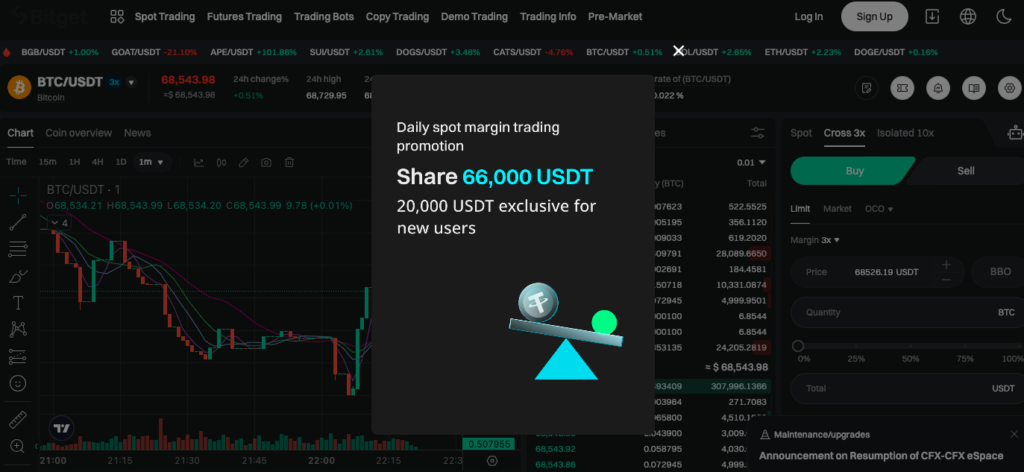
Best Cryptocurrency Exchanges for Low-Cost Trading
Popular Low-fee Crypto Trading Platforms.
Crypto traders are constantly seeking the most cost-effective ways to execute their trades. With hundreds of exchanges available, each offering a unique fee structure, understanding where to find the best deals can significantly impact your profitability. This guide provides an in-depth look at the top cryptocurrency exchanges with the lowest fees, breaking down spot, futures, P2P, and withdrawal costs. Additionally, we offer tips on how to further reduce your trading expenses.

1. Bybit
- Spot Fees: 0.10% (maker & taker)
- Futures Fees: Maker: 0.02%, Taker: 0.055%
- Leverage: Up to 200x
- Highlights: Bybit continues to be a favorite for both spot and futures trading, offering competitive fees. High-volume traders can benefit from tiered fee discounts, and using Bybit’s referral and affiliate programs can also lower trading costs. Bybit is popular for futures trading, thanks to its leverage options and low futures fees.

2. Binance
- Spot Fees: 0.10% (maker & taker)
- Futures Fees: Maker: 0.02%, Taker: 0.05%
- Leverage: Up to 100x
- Highlights: Binance remains the world’s largest exchange by trading volume, offering a range of services beyond basic trading, including staking, loans, and margin trading. Binance’s native token, BNB, allows traders to reduce their fees by 25%, making it one of the cheapest exchanges for active traders. Binance also offers a tiered fee structure for high-volume traders, further reducing costs.

3. OKX
- Spot Fees: Maker: 0.08%, Taker: 0.10%
- Futures Fees: Maker: 0.02%, Taker: 0.05%
- Leverage: Up to 125x
- Highlights: Known for its user-friendly interface and competitive fees, OKX provides low spot and futures trading fees. Like Binance, OKX offers discounts for users holding its native token, OKB. The platform’s diverse array of cryptocurrencies makes it an attractive option for traders looking for both low fees and variety in tradable assets.

4. Bitget
- Spot Fees: 0.10% (maker & taker)
- Futures Fees: Maker: 0.02%, Taker: 0.06%
- Leverage: Up to 100x
- Highlights: Bitget stands out with its low futures trading fees, making it an excellent choice for derivative traders. The platform also offers social trading features, allowing users to follow and copy successful traders, making it suitable for both experienced traders and beginners alike.

5. KuCoin
- Spot Fees: Maker: 0.10%, Taker: 0.12%
- Futures Fees: Maker: 0.015%, Taker: 0.02%
- Leverage: Up to 100x
- Highlights: KuCoin offers one of the lowest futures fees in the market, especially for maker orders. The platform is also known for its wide selection of coins, allowing users to trade over 800 different cryptocurrencies. KuCoin’s rewards programs and trading competitions offer additional ways to earn while trading.

6. CoinEx
- Spot Fees: 0.20% (maker & taker)
- Futures Fees: Maker: 0.03%, Taker: 0.05%
- Leverage: Up to 100x
- Highlights: While CoinEx’s spot fees are higher than competitors, its futures fees are relatively low. CoinEx offers users a variety of payment methods for P2P trading, which is attractive for traders looking for privacy and flexibility.

How to Reduce Cryptocurrency Trading Fees
While choosing an exchange with low base fees is essential, there are several strategies to further reduce costs:
1. Leverage Native Tokens
Most exchanges, like Binance (BNB), OKX (OKB), and KuCoin (KCS), offer discounts if you use their native tokens to pay for fees. Holding a certain amount of these tokens can also unlock additional benefits like higher withdrawal limits or access to VIP accounts.
2. Use Maker Orders
Maker orders are typically cheaper than taker orders because they add liquidity to the market. For example, placing a limit order (a maker order) on Binance can reduce your fee to 0.075% compared to the standard 0.10%.
3. Take Advantage of Promotions
Many exchanges offer fee reductions through promotions, particularly for new users or during special events. For example, Binance regularly offers promotional discounts where fees can be reduced by as much as 50% for a limited time.
4. Volume-Based Discounts
Traders with higher monthly volumes can benefit from tiered fee structures that offer significant discounts. For instance, if you trade over 50 BTC per month on Bybit, your fees can be reduced by up to 20%, saving you substantial amounts over time.
5. Referral and Affiliate Programs
Some exchanges offer rebates through referral programs, where traders can reduce fees by referring friends or family. For instance, KuCoin and Bitget offer users the opportunity to earn rebates on trading fees through referrals.
6. P2P Trading
Peer-to-peer (P2P) platforms allow users to trade directly without intermediaries, often reducing the fees compared to traditional exchanges. OKX, Binance, and Bybit all offer robust P2P markets with minimal fees.

Withdrawal and Deposit Fees
While trading fees are a significant concern, withdrawal and deposit fees also contribute to the overall cost of trading. Here’s what to expect:
- Deposit Fees: Most exchanges do not charge for cryptocurrency deposits. However, fiat deposits might incur fees depending on the payment method.
- Withdrawal Fees: These are often flat and depend on the cryptocurrency. For instance, Bitcoin withdrawals typically incur a fee of 0.0004-0.0005 BTC. To minimize withdrawal fees, some exchanges allow users to withdraw using low-cost networks like BEP-20 or TRC-20.
Conclusion
When it comes to low-cost trading, exchanges like Bybit, Binance, and OKX stand out for their competitive fee structures, wide range of tradable assets, and additional cost-saving features such as native token discounts and volume-based rebates. Bitget and KuCoin are also excellent options, especially for futures trading. For traders looking for privacy and lower fees, P2P trading through exchanges like Binance and OKX can provide a more flexible solution.
By understanding the fee structures and applying cost-saving strategies, traders can significantly enhance their profitability, especially in volatile markets where frequent trading is necessary.






